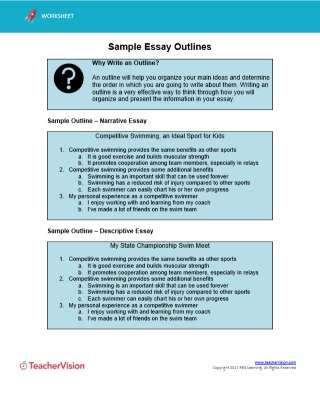
This glossary has definitions of genresand terms.
Allegory: A metaphorical narrative in prose or verse in whichcharacters and parts of the narrative usually represent moral or spiritualvalues.
Anansi Tale: A series of folktales of African origin that describethe adventures of Anansi. These tales are popular in Jamaica.
Anecdote: A short, amusing narrative of an entertaining or curiousincident that is often biographical.
Autobiography: A biography of a person, written by the person.
Ballad: A narrative poem composed of short verses, intended to besung or recited.
Beast Tale: A story in which animals play the roles of human beingsin human settings.
Biography: A written account of a person's life.
Black Comedy: A story that substitutes morbid, unfunny situationsfor carefree, funny ones.
Classic: A literary work meriting the highest praise.
Description: A composition that presents graphic detail on asubjective or objective experience.
Dilemma Tale: A story that ends in a problem rather than a solution.
Editorial: A newspaper or periodical article that expresses theviews of the author on a matter of current interest.
Epic: A long, narrative poem that is generally about the deeds of anheroic figure.
Essay: A brief composition, usually in prose, that gives theauthor's views.
Fable: A short tale that teaches a moral. It usually has animals or inanimate objects as characters.
Fairy Tale: A tale of fiction, usually for children, with fanciful characters.
Fantasy: A highly imaginative tale about somewhat believable, but nonexistent, characters, places, and events.
Farce: A light, funny play that usually emphasizes improbablesituations rather than characters to make a point.
Feminist Literature: Writings by and about women.
Fiction: Imaginative narrative that is designed to entertain.
Fictionalized Biography: A person's life story based partly on factand enhanced by the author's imagination.
Folktale: A narrative that has been retold and is well known within aculture.
Haiku: Unrhymed Japanese poetry with three lines that have five, seven, and fivesyllables, respectively.
Historical Fiction: A story based partly on events from thepast.
Idyll: A short prose piece or poem that describes simple times in romantic ways.
Jingle: A short rhyme or verse with catchy sounds or rhymes.
Juvenile Book: A book for children or adolescents.
Legend: A traditional, historical tale, first told orally and laterin written form.
Melodrama: A play with exaggerated characters and plot.
Memoir: An account of one person's observations andexperiences.
Monograph: A well-documented, detailed study of a limited subject or aspect of a subject.
Monologue: A long speech by one character.
Morality Play: A medieval, allegorical play with the struggle for a character's soul as a theme.
Mystery Play: A medieval, religious play about the scriptures.
Mystery Story: A narrative in which the plot is usually built arounda crime.
Myth: An anonymous story designed to explain the mysteries of life.It usually has exaggerated characters.
Narration: A composition in writing or speech that tells a story orgives an account of something.
Narrative: A story told orally or in writing.
Narrative Poem: A poem, usually long, that tells a story.
Nonfiction: A piece designed to explain, argue, or describe a real event.
Nonsense Verse: Verse that defies meaning either by using inventedwords or misusing meaningful words.
Novel: Extended, fictional prose narrative with full character andplot development.
Novelization: A novel based on a movie.
Novella: Fictional, prose narrative that is longer than a shortstory but shorter than a novel.
Ode: A formal, elaborate lyrical poem.
Parable: A short story intended to teach a moral lesson.
Parody: An imitation of an author or work for comic effect.
Pastoral: Poetry dealing with idealized, rural life.
Pattern Book: A book with predictable plot and/or text.
Persuasive Writing: A piece that proves something or someone to betrue, credible, essential, or worthy.
Picaresque: Spanish fiction that tells of rogues oradventurers.
Picture Book: A book with illustrations that are as important as the text.
Pourquoi Story: A folktale that explains certain events, customs, or behaviors.
Problem Literature: A piece of written work in which the action is focused on difficult choices.
Propaganda: Written or spoken pieces that are intended to influencethe reader or listener strongly.
Prose: Written or spoken language that is not verse.
Psychological Novel: A story in which the characters' motivationsare of primary importance.
Pun: A play on words that are the same or similar in sound butdifferent in meaning.
Quatrain: A poem of four lines or verses.
Realistic Fiction: A story that portrays characters and events asthey are.
Satire: Scorn or ridicule, used humorously in writing to showfollies or vices.
Science Fiction: A story based on fictional, scientific possibilities.
Sequel: A complete story that is a continuation of an earlier story.
Serial: A story or play presented in parts.
Short Story: A brief, fictional prose narrative.
Soliloquy: A speech given by a character as if he were alone.
Sonnet: A 14-line poem that usually rhymes in a formal way and is iniambic pentameter.
Story: An imaginative tale that is shorter than a novel, but longerthan a short story.
Supernatural Story: A narrative with events and situations thatcannot be explained by known causes.
Survival Story: A fiction or nonfiction narrative about characterswho overcome great odds.
Technical Writing: A piece intended to give specificinformation.
Tragedy: A work that presents serious or sad events.
Tragicomedy: A literary work that contains elements of both comedy and tragedy.
Trickster Tale: A story about a mischievous, supernaturalbeing.
Yarn: A long true or imaginary tale of adventure.






